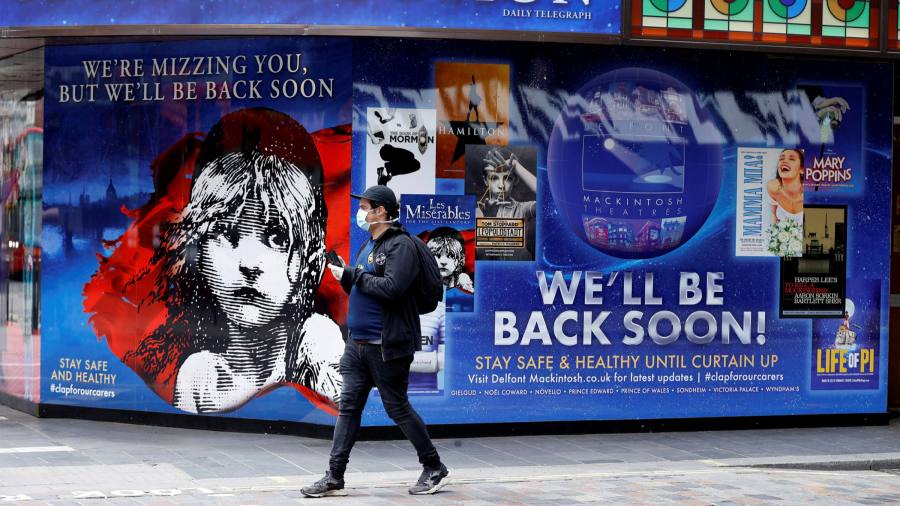[ad_1]
Signs of commercial life are returning to the West End, with restaurateurs and shopkeepers taking on new space in the hope the area will start to buzz again later this year.Â
“We’re now going into a recovery phase and are a lot better off than we were a few months ago,†said Brian Bickell, chief executive of Shaftesbury, which owns an array of shops, bars, restaurants, offices and flats in the central London district.
A revival with the return of bustling, even crowded, streets cannot come too soon for the West End’s pandemic-battered landlords, with businesses forced to close for much of 2020.
Although the vacancy rate on Shaftesbury’s estate has trebled to 10.8 per cent in the past year, interest from tenants is now starting to pick up, Bickell said.
Offers for space has more than doubled at the group since September, with restaurateurs particularly active, according to the company.
The government’s road map for lifting lockdown restrictions, announced on Monday, has added impetus, Bickell added.
“It’s the first time that we’ve had any sense of direction. Before, when there was light at the end of the tunnel, it felt like it was receding. Now it’s coming closer,†he said.Â
Ian Hawksworth, chief executive of neighbouring landlord Capco, said a full recovery was likely to be deferred until ministers gave the go-ahead for staff to return to the office.Â
“There are absolutely green shoots. People are positive but what we’re really after is for office workers to come back: that will help get activity levels to normal,†he said.Â
Hawksworth said he hoped the road map, which may lead to the removal of social distancing restrictions as soon as June 21, would provide a more enduring exit from lockdown than previous attempts to return to normality.Â
“It’s a very similar sentiment to last spring, when businesses were hoping to trade well through the summer. Back then, they got locked down again, but today people are more confident that this is the last lockdown.â€Â
Landlords in the West End have supported tenants whose incomes have dried up, typically by waiving rents or rewriting leases to link rent payments to turnover.
On Thursday, Shaftesbury said it had collected just 36 per cent of the £9.8m in rent it was owed for January. The landlord waived 48 per cent.
More pain was likely as government support measures are withdrawn through the summer, warned Bickell.
“There’s an old mantra: more people go bust in the recovery than in the recession. We are realistic that we will lose some tenants when they come off life support,†he said.
With vacancy rates so high, prospective tenants are in a strong position to strike favourable terms such as long rent-free periods or turnover-linked rent payments.
“Every [tenant] wants a pandemic clause now which says, ‘if there’s another lockdown, then there’s a complete cessation of rent’. People are not going to forget [coronavirus] in a hurry,†said Bickell.
James Cooksey, director of central London at the Crown Estate, which manages the monarchy’s £13.4bn commercial property portfolio in the public interest, reported a growing number of inquiries from health and wellbeing companies for space in central London.
But nerves over the exit from coronavirus are keeping most businesses on the sidelines, he added. “To contemplate significant investment, they want to have some certainty about getting to a point where streets are full again.â€
[ad_2]
Source link





